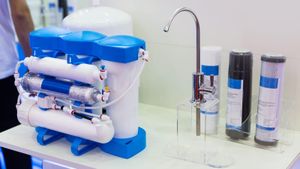The ability to accurately diagnose syphilis—a once-conquered infectious disease—takes on new importance amid growing global infection rates and changing healthcare landscapes. A new study has brought promising news, finding capillary blood sampling to be just as effective as traditional venous sampling for diagnosing syphilis. This is especially significant considering the challenges of accessing healthcare services, particularly for populations underrepresented in conventional research methodologies.
Conducted between May and October of 2022, and involving 191 participants from heavily populated areas of Porto Alegre, Brazil, the research sought to determine whether less invasive capillary blood tests could effectively provide accurate diagnoses. The study was part of the Health Information and Monitoring of Sexually Transmitted Infection (SIM) initiative, which aims to improve treatment adherence among individuals with syphilis.
This pressing health issue is underscored by stark statistics. An estimated 7 million adults aged between 15 and 49 contracted syphilis globally in 2020, with Brazil reporting over 1.1 million cases between 2011 and 2022. These figures reflect the infection’s resurgence, highlighting the urgent need for effective, accessible diagnostic tools.
Traditionally, syphilis testing has relied on venous blood samples, which, though effective, pose barriers for many individuals due to pain, discomfort, and the need for trained personnel. The latest study aimed to determine whether capillary samples, obtained via finger pricks, could provide comparable diagnostic accuracy to venous samples.
According to the findings, capillary blood sampling demonstrated remarkably high sensitivity rates of 99% and specificity rates of 100% when tested against standard serological methods such as VDRL and TPHA. More impressively, analysis also indicated substantial agreement between the results derived from capillary versus venous samples, reinforcing the potential of capillary sampling as not just viable, but equally reliable. "Capillary VDRL showed 99% sensitivity and 100% specificity, mirroring TPHA results," the authors noted.
The procedure's simplicity can facilitate its widespread adoption. Because capillary blood collection can be performed by trained healthcare workers without specialized equipment, it opens the door for testing initiatives, particularly in remote or underserved areas. The researchers assert, "The technique can be replicated by healthcare professionals and students, especially in remote locations, and it allows for self-collection and postal sending of samples for testing."
While the primary outcome measuring accuracy is significant, the study also acknowledges potential challenges. Capillary blood samples are prone to hemolysis—where red blood cells break apart—which can affect laboratory results. Nonetheless, the research found this did not significantly hinder the diagnostic performance of capillary tests. Importantly, none of the errors resulted from the blood collection method itself, but rather from inherent variations seen during sampling.
Overall, the study calls for public health initiatives to integrate capillary blood sampling as part of routine syphilis testing protocols. The findings suggest not only could this alternative method of sampling reduce the burden of diagnosis at the point of care, but it could also significantly expand syphilis screening accessibility. Such advancements are particularly promising for large-scale studies aimed at controlling and preventing diseases like syphilis from spiraling out of control.
Lastly, the study emphasizes the importance of future research exploring the application of capillary blood testing protocols across various demographics and co-infection scenarios. The validation of capillary blood samples presents new avenues not just for syphilis testing, but for advancing serological diagnostics as a whole.



